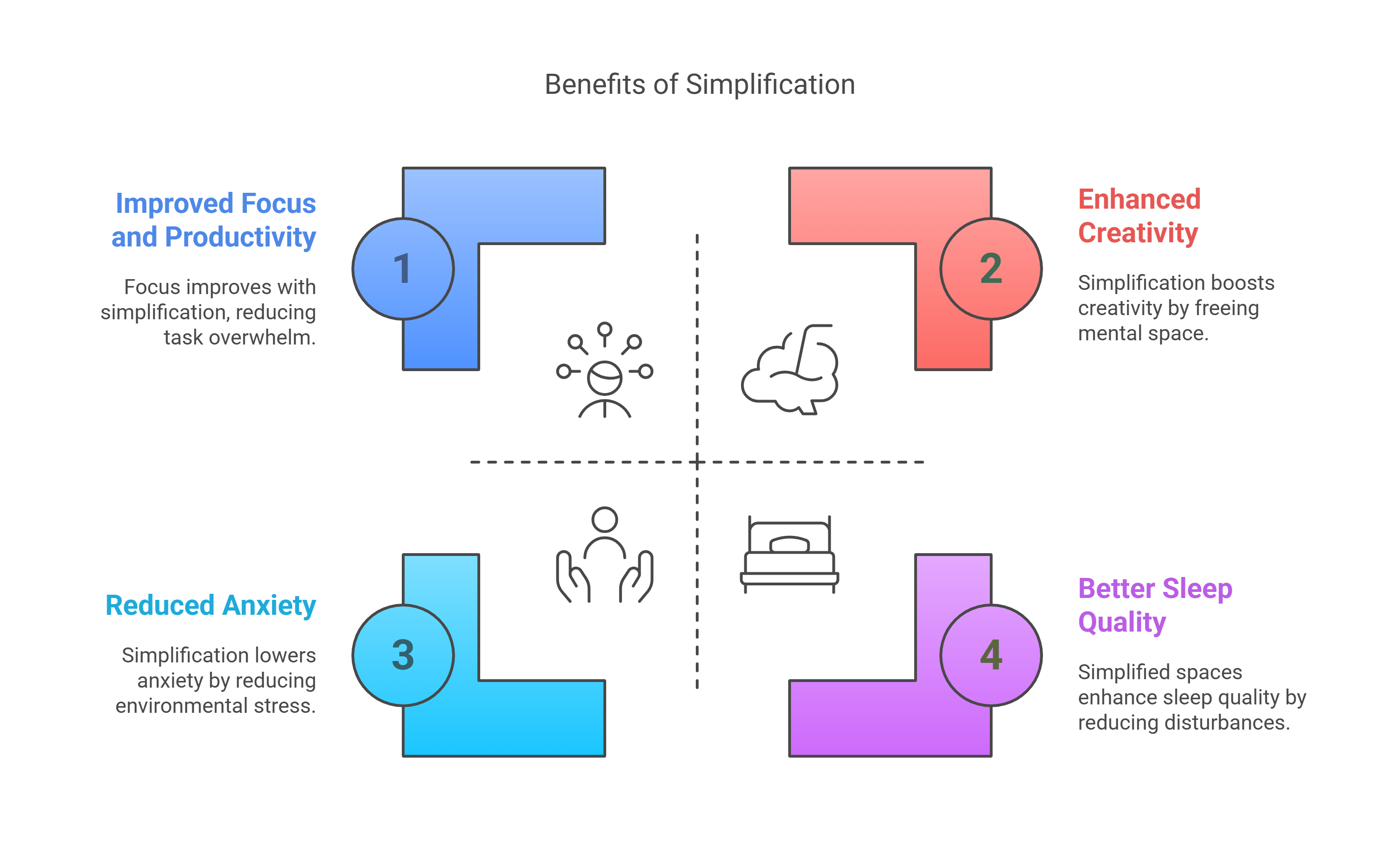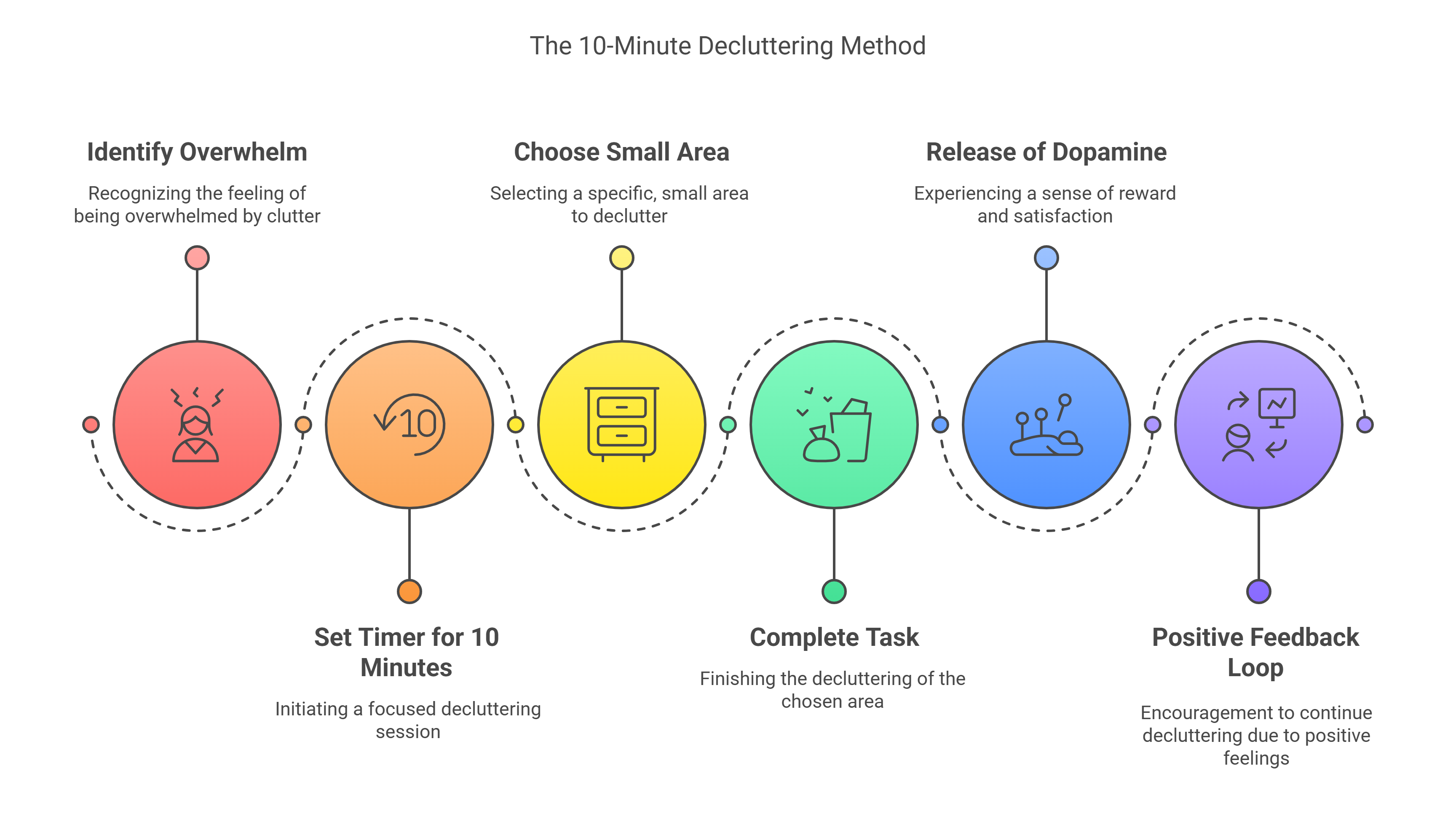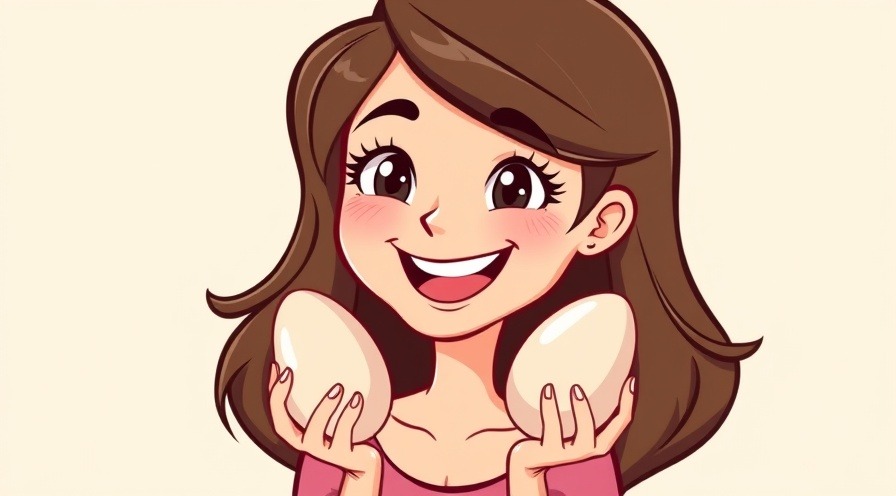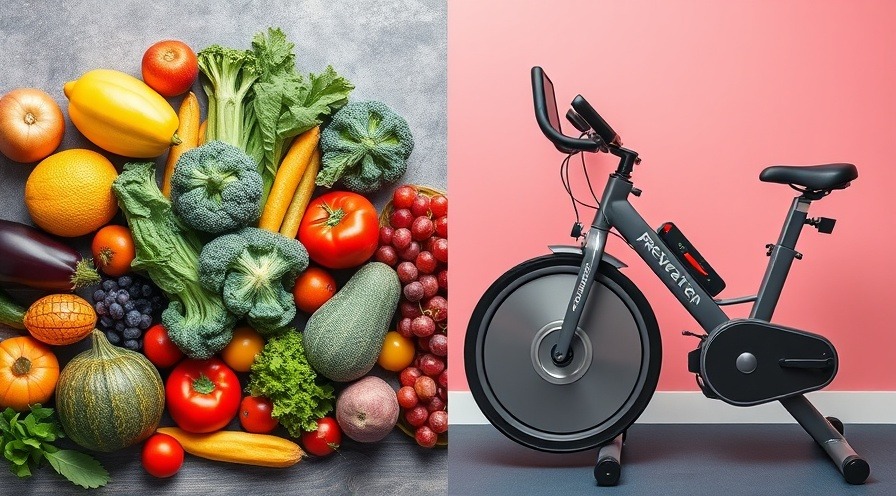
The Science of Decluttering: How Simplifying Your Space Transforms Your Brain
We all know that feeling. You walk into a cluttered room and immediately feel your shoulders tense up. Your eyes dart from pile to pile, unsure where to focus. Your breathing gets shallow. What you're experiencing isn't just annoyance—it's your brain's biological response to visual chaos. As it turns out, the connection between your physical environment and mental wellbeing runs deeper than you might think.
Your Brain on Clutter: The Stress Connection
That overwhelmed feeling when facing a messy space isn't just in your head—well, actually, it is literally in your head, but in a neurochemical way. Research has shown that cluttered environments trigger the release of cortisol, our primary stress hormone.
According to Dr. Eva Selhub, a physician and lecturer at Harvard Medical School, "Clutter bombards our minds with excessive stimuli, causing our senses to work overtime on irrelevant input that doesn't matter. This overstimulation makes it difficult to focus and can drain our cognitive resources."
The science is clear: when surrounded by too many objects competing for our attention, our brain's visual cortex becomes overwhelmed. This cognitive overload reduces our working memory capacity and ability to process information effectively.

From Chaos to Clarity: The Neuroscience of Space
Have you ever noticed how a clean, organized space seems to invite deeper thinking? There's science behind that feeling too.
When you clear physical space, you're not just making things look nicer—you're creating neurological breathing room. Studies using functional MRI have shown that people exposed to orderly environments show increased activity in the prefrontal cortex—the brain region responsible for decision-making, planning, and goal-directed behavior.
Dr. Sabine Kastner, professor of neuroscience at Princeton University, has conducted extensive research on how visual environments affect cognitive function. Her team found that
"multiple objects compete for neural representation in the visual cortex, and this competition is largely unconscious."
In simpler terms, every item in your visual field is silently draining your mental energy, whether you realize it or not.

The Ripple Effects of Simplification
The benefits of simplifying extend far beyond just feeling less stressed. Here's what happens when you embrace simplification:
Enhanced Creativity
A decluttered environment creates mental space for new connections and ideas to form. When your brain isn't busy processing visual chaos, it can redirect that energy toward creative thinking and problem-solving.
Improved Focus and Productivity
With fewer distractions competing for your attention, your ability to concentrate skyrockets. Tasks that once felt overwhelming become manageable when your environment supports rather than sabotages your efforts.
Better Sleep Quality
Research published in the journal Sleep found that people who sleep in cluttered bedrooms are more likely to have sleep disturbances. When you simplify your sleeping space, you're setting the stage for more restful nights.
Reduced Anxiety
A 2010 study published in Personality and Social Psychology Bulletin found women who described their homes as "cluttered" had higher levels of the stress hormone cortisol throughout the day compared to women who described their homes as "restful" or "restorative."
Starting Small: The 10-Minute Method
If the thought of decluttering your entire life feels overwhelming (hello, cortisol spike!), try this: set a timer for just 10 minutes. Focus on one small area—a drawer, a shelf, or even just your desk.
The beauty of this approach is that it works with your brain's reward system. Completing even a small organizational task triggers the release of dopamine, the "feel-good" neurotransmitter that reinforces behavior. This creates a positive feedback loop, making it easier to continue simplifying over time.

Digital Decluttering: The Forgotten Frontier
While physical clutter gets most of the attention, digital clutter can be just as taxing on your cognitive resources. Those hundreds of unread emails, dozens of open browser tabs, and thousands of unsorted photos create the same type of mental strain as physical mess.
Try these digital simplification strategies:
Use the "touch it once" principle for emails
Implement a simple file naming system
Schedule regular digital cleanup sessions
Consider a "digital sunset" an hour before bedtime
The Mindfulness Connection
Simplification isn't just about getting rid of things—it's about becoming more intentional with what you allow into your space and life. This mindful approach to your environment naturally extends to other areas of life, creating a virtuous cycle of awareness and intentionality.
As you create physical space, you'll likely notice a parallel opening of mental and emotional space—room to breathe, think, and simply be.
Recommended Audiobooks for Your Simplification Journey
"Decluttering at the Speed of Life" by Dana K. White
"Atomic Habits" by James Clear
"The Life-Changing Magic of Tidying Up" by Marie Kondo
Whether you start with a single drawer or commit to a whole-house transformation, remember that simplification isn't just about aesthetics—it's a science-backed strategy for creating the mental space needed to thrive in our complex world.
You may also like J.J. Norace's article "The Psychology of Decluttering: Mindsets for Success"
 Add Row
Add Row  Add
Add 




 Add Row
Add Row  Add
Add 

Write A Comment